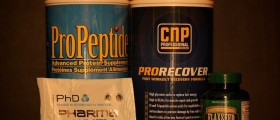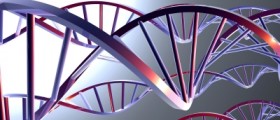
Proteins are organic compounds that play a significant role in the body. Proteins are built from amino acids, which are essential for many physiological functions. Those amino acids are promoting the development, growth and healing processes in the body. Proteins are vital for making enzymes, hormones, and other body chemicals. They are needed for muscles, hair, skin and all of the internal organs. Proteins are the only food source of nitrogen, essential to all life on earth.
Being built from amino acids, different proteins contain specific amino acids in specific order and amount. Proteins from meat are different than those from milk, for example. There are twenty two different amino acids, and nine of them are called the essential amino acids. Essential amino acids are somewhat specific, because they cannot be made by the body and they can be provided only through the diet.
The complete protein
A complete protein is a protein that contains all of the essential amino acids, in an adequate proportion. Not all of the proteins containing all essential amino acids may be called “the complete proteins”. Correct proportion, sufficient to support the biological functions of the body, is what makes one protein complete.
One complete protein contains Tryptophan 7 mg/g of protein, Threonine 27 mg/g of protein, Isoleucine 25 mg/g of protein, Leucine 55 mg/g of protein, Lysine 52 mg/g of protein, Methionine + Cystine 25 mg/g of protein, Phenylalanine + Tyrosine 47 mg/g of protein, Valine 32 mg/g of protein, and Histidine 18 mg/g of protein.
Animal sources of protein are generally richer in different amino acids. Soybean is the best vegetable source of protein. Almost all foods contain protein in some amounts and meals prepared combining different protein-rich foods can provide an improved balance of the essential amino acids and a more complete protein source.
Recommended daily dosage of protein
One healthy person should obtain around 0.8 grams of protein per kilogram of body weight. Individuals under the high physical and emotional stress, pregnant and lactating women, and children in development may need more protein daily.
Too much protein can actually be harmful to the organism, as it puts the body under extra stress. The excessive amount of protein can’t be stored in the body and it must be eliminated. Normally, it happens through the urination, and the kidneys are put under the lot of stress. Frequent urination may also lead to dehydration and other associated health complications.
Another known issue regarding too much protein is the leeching of calcium from the bones because the acids released by the body as it digests protein are absorbed with the help of calcium.














_f_280x120.jpg)

Your thoughts on this
Loading...